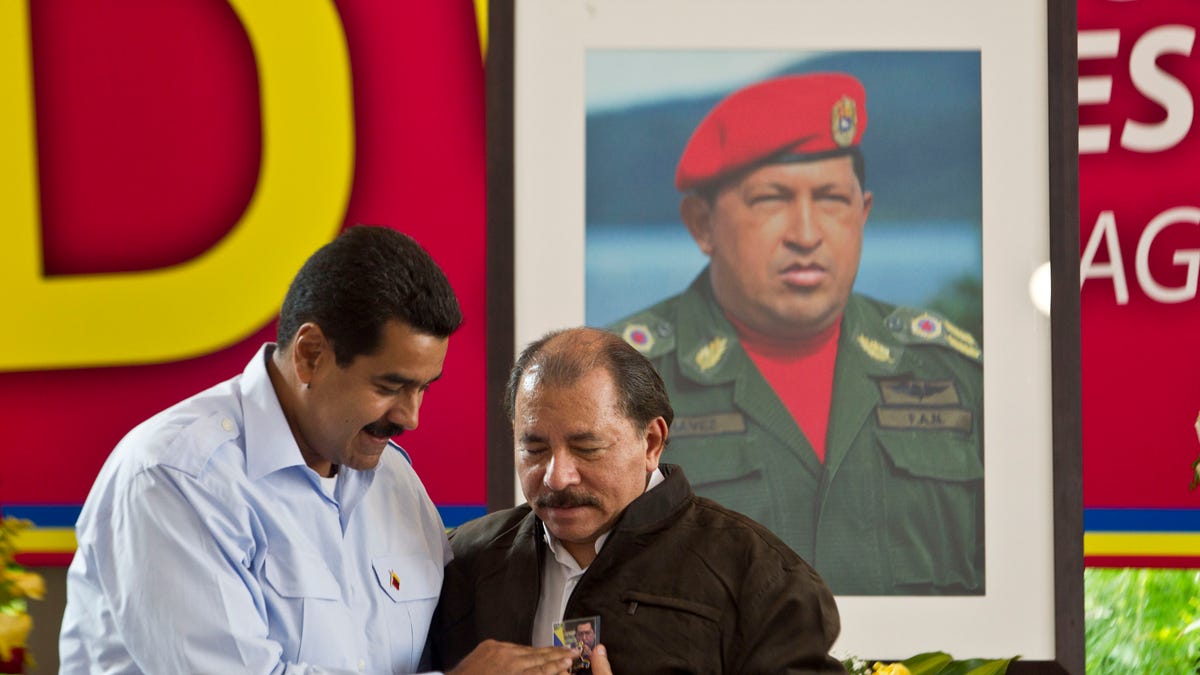
Venezuela's President Nicolas Maduro gives a present to Nicaragua's President Daniel Ortega during opening session of the 8th Petrocaribe Summit in Managua, Nicaragua, June 29, 2013. (AP2013)
Heads of state of Petrocaribe nations ended a summit in Nicaragua over the weekend with agreements to promote the regional economic bloc and increase the flow of food and services among member nations.
However, the oil Petrocaribe countries receive from Venezuela will no longer be as cheap as it was when Hugo Chavez lived. According to the Spanish daily El País, between May and June the government of Nicolas Maduro increased the once-preferential interest rate as much as 50 percent in some cases.
The change will result in mounting debt for member countries, which already owe Caracas more than $20 billion for oil shipments over the last eight years, according to the Banco Central de Venezuela. The newspaper said that because of the increase, countries like Guatemala are setting conditions to its full incorporation into the block.
Petrocaribe, created in 2005, is a pact between 17 nations and Venezuela that offers below-market financing in exchange for goods and services. The mechanism devised by the late Chavez agrees to the payment of 40 percent of the bill after 90 days of the purchase, either with cash or with products like beans, cattle or sugar. The rest of the bill is to be financed in 17 to 25 years, at an interest rate of only 1 percent to 2 percent, with a two-year grace period.
Since Chavez’s death, however, the government of Maduro has held bilateral meetings with some of its partners to negotiate increases that range between 1 percent and 4 percent.
According to El País, Honduras was one of the first countries to accept the rate increase of 1 to 2 percent, on May 23. But Guatemala, which is currently a guest member, has formally complained and is conditioning its full membership to interest rates of 2 percent or less.
Besides Venezuela, Petrocaribe is comprised by Antigua and Barbuda, Bahamas, Belize, Cuba, Dominica, Grenada, Guatemala, Guyana, Haiti, Honduras, Jamaica, Nicaragua, Dominican Republic, St. Kitts and Nevis, Saint Vincent and the Grenadines, St. Lucia and Suriname.
During the past eight years, the state-owned Petróleos de Venezuela (PDVSA) has sent all these countries a total of 232 million barrels of oil, with which they have been able to cover 40 percent of its energy demand.






































